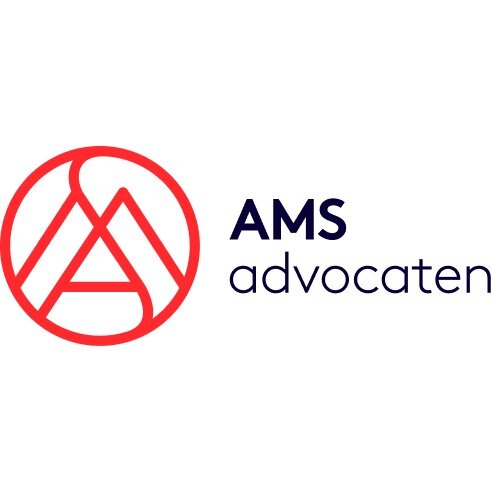Best Administrative Lawyers in Amsterdam
Share your needs with us, get contacted by law firms.
Free. Takes 2 min.
List of the best lawyers in Amsterdam, Netherlands
About Administrative Law in Amsterdam, Netherlands
Administrative law in Amsterdam, Netherlands governs the relationship between individuals and the government. It deals with issues related to public administration, such as permits, licenses, zoning, taxation, and governmental decisions affecting citizens and businesses. Understanding administrative law can be complex, which is why seeking legal advice can be essential.
Why You May Need a Lawyer
There are several situations where you may require legal help in administrative matters:
- If you are facing issues with obtaining permits or licenses for your business.
- If you believe a government decision or action has affected your rights unfairly.
- If you need assistance with zoning regulations or land use planning.
- If you are dealing with tax-related disputes or challenges with governmental taxation decisions.
- If you require representation in administrative court proceedings.
Local Laws Overview
Amsterdam's administrative law is influenced by both national legislation and local ordinances. Key aspects relevant to administrative matters include:
- The General Administrative Law Act (Algemene Wet Bestuursrecht) sets out the general principles and procedures regarding administrative law matters.
- The Municipal Ordinance of Amsterdam (Gemeentelijke Verordening) outlines specific regulations and policies applicable within the city.
- The Dutch Constitution guarantees fundamental rights and freedoms that may be relevant in administrative cases.
- Amsterdam follows the administrative procedure, which involves applying for permits, engaging in public consultations, and appealing decisions.
Frequently Asked Questions
1. Can I challenge a government decision if I feel it is unfair?
Yes, you can challenge a government decision through administrative procedures. You may need to submit an objection or appeal, depending on the circumstances. It is advisable to consult with an administrative lawyer to understand the specific steps and requirements.
2. How long do I have to file an objection or appeal?
The timeline for filing objections or appeals varies depending on the specific case and the applicable legislation. Generally, you have six weeks to submit an objection or appeal from the moment a decision is communicated to you. It is crucial to seek legal advice promptly to meet the deadlines.
3. What is the role of the administrative court?
The administrative court reviews decisions made by administrative bodies and assesses their legality. It ensures fair treatment and compliance with administrative law principles. If you are unsatisfied with a decision, you can bring your case before the administrative court for review and consideration.
4. Are there alternative methods of dispute resolution in administrative matters?
Yes, in some cases, alternative dispute resolution methods like mediation or negotiation can be used to resolve administrative disputes. These methods can provide a quicker and less formal way of reaching a resolution. However, legal advice is still recommended to navigate the process effectively.
5. How can a lawyer assist me in administrative matters?
A lawyer experienced in administrative law can provide guidance and representation throughout the administrative process. They can help you understand your rights, prepare necessary documents, gather evidence, and present your case effectively. They can also negotiate on your behalf and represent you in administrative court proceedings if necessary.
Additional Resources
Here are some resources that can be helpful for someone in need of legal advice regarding administrative matters:
- Amsterdam City Hall - Offers information on permits, licenses, and administrative procedures within Amsterdam. Visit their website for specific details and contact information.
- Netherlands Bar Association (Nederlandse Orde van Advocaten) - Provides a directory of qualified lawyers specializing in administrative law in Amsterdam. You can search for a suitable lawyer using their online database.
- Legal Aid Board (Juridisch Loket) - Offers free legal information and initial advice in various areas of law, including administrative law. They may provide assistance based on your eligibility criteria.
Next Steps
If you require legal assistance in administrative matters, consider taking the following steps:
- Identify the specific issues you are facing, such as permit denials, unfair taxation, or zoning disputes.
- Research and gather relevant documents and information related to your case.
- Contact a qualified administrative lawyer to discuss your situation and receive legal advice.
- Proceed with the recommended legal steps, such as filing objections, appeals, or seeking alternative dispute resolution.
- Maintain open communication with your lawyer, provide necessary information, and follow their guidance throughout the process.
Lawzana helps you find the best lawyers and law firms in Amsterdam through a curated and pre-screened list of qualified legal professionals. Our platform offers rankings and detailed profiles of attorneys and law firms, allowing you to compare based on practice areas, including Administrative, experience, and client feedback.
Each profile includes a description of the firm's areas of practice, client reviews, team members and partners, year of establishment, spoken languages, office locations, contact information, social media presence, and any published articles or resources. Most firms on our platform speak English and are experienced in both local and international legal matters.
Get a quote from top-rated law firms in Amsterdam, Netherlands — quickly, securely, and without unnecessary hassle.
Disclaimer:
The information provided on this page is for general informational purposes only and does not constitute legal advice. While we strive to ensure the accuracy and relevance of the content, legal information may change over time, and interpretations of the law can vary. You should always consult with a qualified legal professional for advice specific to your situation.
We disclaim all liability for actions taken or not taken based on the content of this page. If you believe any information is incorrect or outdated, please contact us, and we will review and update it where appropriate.















